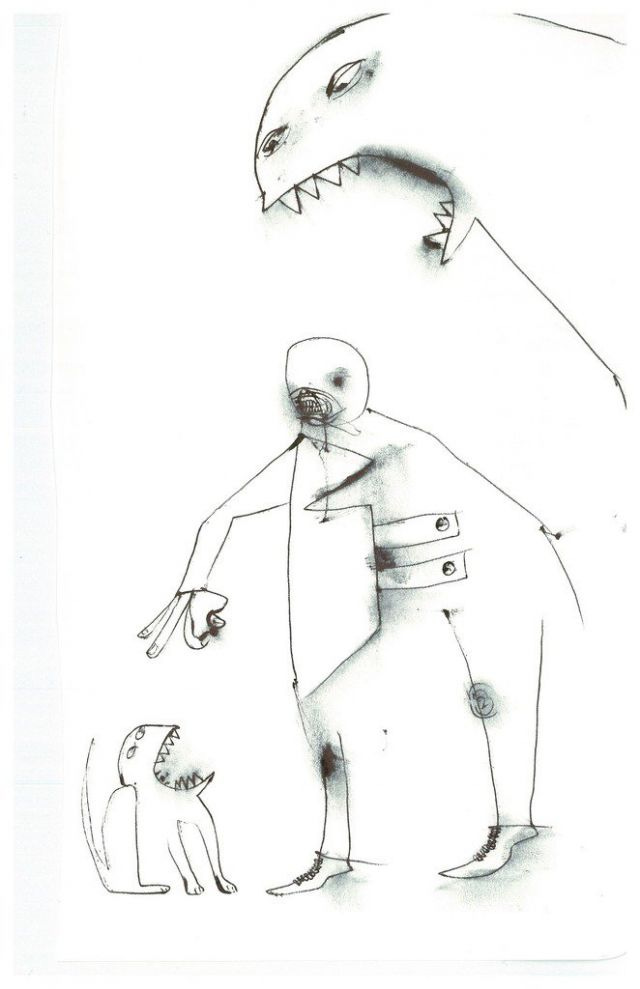Jurassic Park
Maddd Science

Jurassic Park works because the idea of an amusement park coming to life and rebelling against its creators is an immediately delightful idea that appeals to the same instinct for excitement that draws people to amusement parks in the first place. It’s worked for Jurassic Park, Westworld, and that one Rick and Morty episode, and I think it has a lot of juice left. Personally, I’d love to see a take on Jurassic Park done with classic horror movie monsters as a Cabin in the Woods sequel.
The problem with the concept? You can only do it once within any given franchise. The Jurassic Park sequels were just kinda generic dinosaur adventure movies. Seeing a theme park self-destruct is fun. Seeing a movie about the aftermath isn’t. I don’t have high hopes for Jurassic World 2.
Then again, I never liked the first Jurassic World, for reasons best explained in the incredibly engaging half-hour lecture I'm starting this issue with. If you're only going to click one link, check out this exploration of Spielberg's signature "kinda obvious when you think about it" subtext and how it turns Jurassic Park into one long allegory for parenthood with a little God-vs.-the-devil in there for good measure.
Video: Spielberg’s Subtext
Mike Hill, THU Gathering Berlin, Vimeo
"And then they experience simulation of childbirth through the birth of the raptor. And the entire time, we've got these two people, these two everyday people with very common problems, that are basically being chaperoned through this guided tour of life by archetypal God and archetypal devil.
[...] What Spielberg is doing is masking the very, very understandable story that we all have as adults, and he's hiding under a layer of dinosaurs and theme parks and allegories."
When do characters deserve to die?
John August, on his blog
What makes this one death in Jurassic World so odd is that the character is neither hero nor villain. We’re not rooting for comeuppance, yet the sequence seems designed for exactly that — payback for a karmic debt owed.
Okay, let's stop dissing Jurassic World with comparisons to Jurassic Park and switch to the equally negative Jaws comparisons.
'Jaws' at 40, 'Jurassic World' and the lessons Hollywood didn't learn from the Spielberg blockbuster
Rebecca Keegan, LA Times
"Jaws" merits re-watching not because it helped revolutionize the business of movies, together with another little sleeper hit two summers later called "Star Wars," but because it's a model of efficient, character-driven storytelling. If Spielberg had had the digital tools of 2015 at his disposal as a young director, maybe he wouldn't have learned to tell a story through an actor's widened eyes or a barrel bobbing in the water.
Why paleontologists love the noisy, featherless, inaccurate dinosaurs of ‘Jurassic Park’
Rachel Feltman and Abby Ohlheiser, Washington Post
KJ: Another big pet peeve is when a dinosaur arrives and it's like "BOOOOOOOOM."
MC: They're all way too noisy. That's the other thing. The loudest animals in the world in these movies are the predators. In real life, they're usually the quietest animals. It's a good way to starve, running around screaming your head off.
KJ: Hey! I'm killing! Hey! Hey!
Somebody needs to get me this book for Christmas.
Paperbacks From Hell is as wild as its source material
Katie Rife, The AV Club
Each chapter begins with an iconic novel like The Exorcist or The Omen before delving into their many, many spin-offs, a structure that helps put the different subgenres into context, particularly for horror movie buffs. (There’s surprisingly little overlap between horror movies and novels outside of the blockbuster hits.) Hendrix similarly puts these books into context by tying them to sociopolitical trends; the chapter on haunted-house novels is especially incisive, drawing parallels between the evolution of ghost stories and the economic anxiety of the 1970s. Another interesting observation comes in the segment on Native American curses as a horror trope, which Hendrix concludes play a role similar to the nuclear threats of apocalyptic fiction as a reflection of America’s sins.
Austenistan
Moni Mohsin, The Economist
“Austen resonates with us because Regency England is so much like today’s Pakistan,” says Sukhera, 40, a mother of three girls. “I know her books are 200 years old and set in small English county towns and villages but, really, her themes, her characters, her situations, her plots, they could have been written for us now.”
This Twitter tone poem about alien oil wrestling
Jared Pechacek, Twitter
Forget space gladiators fighting to the death, where are all my scifi takes on Turkish oil wrestling?
[...] The aliens open the arena door. Blinking in the light, you wait to be handed a short sword, or a crackling glowing gun, or a tusk-like spear. Then lukewarm fluid cascades over you.
And while we're doing short fiction....
“An Unexpected Honor”
Ursula Vernon, Barnes and Noble Sci-Fi & Fantasy Blog
Well. This is an unexpected honor. My fellow winners have said some very meaningful things up here on the stage tonight.
I want to talk to you about dead whales.
Next Week on Maddd Science: It’s Time For Some Game Theory
Header image: "don’t feed the animals or you will feed the animals," by Daniel Williams